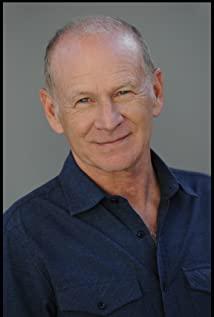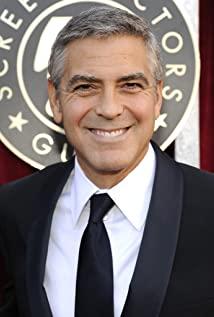"President Killing" is adapted from a stage play and tells an event that happened during the Democratic presidential candidate's primary election in Ohio in 2004. At that time, there were two candidates competing for the qualifications of the Democratic presidential candidate at the same time. Under the fierce election situation, Ohio became the key place to determine the victory or defeat of the two sides. Whoever wins Ohio will qualify as the official presidential candidate of the Democratic Party. people. In addition, because the Republican Party was not strong at the time, becoming the Democratic presidential candidate to a large extent also means that this person will become the next president of the United States. In this context, the Democratic presidential candidate primaries to be held in Ohio have become the focus of everyone's attention, and it has also become a field of desperate struggle between the two parties.
The film mainly discusses the ideals and realities, work and friendship faced by relevant personnel during the campaign from the perspective of the party played by George Culloni, a governor and presidential candidate named Morris. conflict. Morris is a candidate with a radical attitude, a sharp political opinion, and a strong advocate of social justice and trade protectionism. In order to run for the president, he set up a very good campaign team, in which Paul served as the chief person in charge of all specific affairs. Under Paul, there is a brilliant young man Steven, who is the most capable assistant and the chief think tank in the electoral college. "President Killing" is the core of Steven, showing how people around form a cruel food chain in the political circle, and how much the individual must pay to win in the environment of the weak and the strong.
Steven is a typical political golden boy. Although he is only 30 years old and has not been in the political circle for a long time, he has shown extraordinary talent and wit in all aspects. What is more commendable is that he believes in ideals and Morris. He is a politician who can lead the United States to social justice. Steven and his boss Paul form a very perfect combination. Although the latter is not like Steven’s priority on ideals, he is experienced and old in election campaigns, and he is well versed in various winning methods and strategies. In contrast, their leader Morris is the most principled and ideal person among them. When the election situation in Ohio came to a stalemate, a congressman, Thomas, who had a large number of votes in his hands and enough to influence the results of the primary election, proposed the position of "Secretary of State" as the price of cooperation. Both Steven and Paul hoped that Morris would accept the exchange terms, but Morris firmly refused to agree, because Congressman Thomas not only disagrees with him politically, but also his character cannot make him agree.
■Two things happened at the turning point of the film. The first thing was that the head of the electoral college of the opponent candidate secretly met with Steven. In the fierce election battle, it is a taboo for Steven to meet privately with his opponents. However, because he failed to contact Paul in the first place, Steven went to the appointment out of vanity and curiosity. Sure enough, the other party proposed to poach the corner and told Steven that they had reached an agreement with Congressman Thomas that they would win without any suspense and obtain the presidential candidacy. The other party further advised Steven on this basis: "I want Working for a friend, or wanting to work for the president?" The
second turning point was that Steven and Molly, a female intern under him , got better. This incident itself was nothing, but Steven unexpectedly learned that Molly had had a one-night stand with Morris some time ago. Although she had only one night stand, she became pregnant because of this. Now she urgently needs a sum of cash to get an abortion. At this critical moment, this scandal will undoubtedly cause devastating damage to Morris' election.
In this, Steven faced the challenge of conflict between ideals and reality, work and friendship. Since the opponent has already obtained the cooperation of Congressman Thomas, it is highly likely to win the election. If you jump to the opponent's camp, it means that you will get the ticket to the White House, but the price is that you must betray Morris and your teammates. My own trust, and betray my ideal of pursuing social justice. As for the matter between Morris and the female intern Molly, if it is based on work and elections, Steven should act immediately, let Molly remove the child as soon as possible without anyone knowing, and remove her immediately afterwards. Fired, let her disappear from the team. Just doing this is too cruel and realistic for Molly, after all, it is her political ideals and career prospects that will be interrupted.
Faced with these two psychological conflicts, Steven finally chose professional ethics, which is to tell his boss Paul about the meeting of his opponent and the specific face of the conversation. As for Molly, as her immediate boss, she strictly requires her to keep secret about the one-night stand and pregnancy, arranges her abortion privately, and asks her to leave immediately after the matter is over. After all, if Molly made a mistake and did something that endangered the team and the election, she must accept the consequences of her fate. It's just that Steven never expected that after doing these two things, unexpected consequences and changes would happen.
■Not long after telling Paul that he had met with the opponent in private, Steven received a call from Time magazine reporter Ada. Ada said she learned about Steven’s meeting with the opponent through a secret channel. , And said that unless Steven tells the conversation between them and Congressman Thomas, she will publish the news that Steven betrayed his team in the newspaper. This frightened Steven. After all, if the news were in the newspapers, Steven’s future would be ruined, so he begged the other side to be merciful and mentioned that he had always been a good friend of the other side and had been very kind to provide her with all kinds of things. information. However, Ida said ruthlessly that the reason Steven treated her as a friend was because she was a reporter for Time magazine and everything was based on interest.
Steven thought it was his opponent who revealed the news of the meeting, but his boss Paul soon admitted that it was him, because this would justify expelling Steven. As for why Steven was fired, it was because he could not accept subordinates with questionable loyalty and could not allow mutual suspicion factors to remain in the campaign. As for Morris, he already knew about this matter, and he very much agreed with this approach.
Steven was furious. He immediately ran to the opponent and decided to join the opponent's camp. He also said that he had a big news in his hand that could make Morris a complete defeat. Steven's reaction and counterattack are extremely emotional, but also very human and understandable. However, the childishness and selfishness of the human heart are also fully revealed at this moment. When Steven initially considered whether to join the enemy camp and whether to interrupt Molly’s career ruthlessly, when the fate of others was in his hands, he said in a high-sounding manner that he had a lofty ideal, a high morality, and a professional ethics. Put it above personal development and personal friendship. However, when the situation was reversed, when he himself made mistakes that endangered the team and the election, and others chose to interrupt his job prospects ruthlessly, he did not hesitate to put aside his professional ethics and resorted to unscrupulous retaliation. .
It's just how deep the water in the pond of politics was that Steven didn't fully understand until the final blow. Steven took refuge in his opponent in despair and confidence, but he didn't expect that the opponent would refuse to let him join in one bite. The other party bluntly admitted that the reason for digging him was based on the consideration of ability, but the more important reason was to destroy the golden combination of Steven and Paul. Now he has been expelled and the golden combination is gone. It doesn't matter whether Steven joins or not. After Steven was fired by the enemy, it seemed unwise for us to hire him. On the one hand, anger might make Steven make the wrong decision. On the other hand, it would appear that we had accepted an opponent. No garbage.
After being severely beaten by the cruel reality, Steven then ushered in a heavy blow to his life-female intern Molly killed herself. Molly is a twenty-year-old young girl whose father is a well-known political figure and a devout Catholic. After she tragically removed the child alone and returned home alone with difficulty, she repeatedly called Steven, wanting to beg him not to drive herself away and keep herself in the campaign, but Steven always did not pick up the phone. After learning that Steven was expelled, Molly was completely desperate. She knew that Steven would definitely join the enemy camp and would definitely tell the story between her and Morris. In this way, not only the future of my work is over, but my life is also over. Because after the news spreads, he will not only drag down Morris's future, but his father's political career will also be implicated. Moreover, his father believes in Catholicism and is conservative by nature, and will never forgive himself.
How easy is it to sacrifice others in the name of justice and morality? How convenient is it to condemn others in gorgeous rhetoric? But how great the potential cost can be, often only when you actually face it, you know that you can't afford it. When everyone is speaking righteously and in a high-sounding situation, if you really ask yourself, except for the dullest and most ignorant, how many people really dare to say that it is not for themselves in the end? Either substantive interests, or magnify their own image, or show off their knowledge and moral level, when they sacrifice others, people can always reap these things in the end. But when in a different place, not many people can really let others sacrifice themselves without hesitation or complaint. People are selfish, but they are packaged in different ways and the degree of self-deception is different.
■The reporters who were regarded as friends threatened and insulted, were expelled by Morris and Paul, and were calculated and played by their opponents. After all this, coupled with the deep blow and self-blame caused by Molly’s suicide, Stie Wen finally understands what is ideal, what is reality, what is responsibility, and what is friendship. All of these are fake. It depends on which drama and role he plays. Only the naked ambition in his heart is true, and only his desire to become a man is true. Since you want to stand out, you should not be pretentious and deceive yourself. So Steven first approached Congressman Thomas, then directly approached Morris, and negotiated with him privately on the grounds of Molly.
Steven told Morris that Molly left a suicide note before she died, which can prove that she and Morris had a one-night stand and pregnancy, and that Molly had an abortion and suicide for Morris. As the price of keeping secrets, Steven asked two things. The first is to expel Paul and let Steven take his place. The second is to agree to Congressman Thomas’ conditions and exchange the position of Secretary of State in Ohio. Votes. Although Morris did not believe that Molly had left any suicide note, he finally agreed to these two conditions. At the press conference the next day, Morris enthusiastically embraced the congressman Thomas, whose concept was not compatible with him, but the two sides engaged in illegal transactions, and then shouted his great ideas and the absoluteness of the U.S. Constitution in the most impassioned tone. Support-ideals are great because only it has enough brightness to cover the most naked ambitions.
"The President's Killing Bureau" made a very explicit satire on American politics, exposing that in order to gain popular support, politicians publicly stated various fairness, justice, and moral propositions, but in private, they just wanted to be elected by all means. And the political arena is like a wild jungle, relying on the law of survival of the weak and the strong. Just like the key characters Steven, Paul and Morris in the film, Steven originally thought that ideals and morality were important qualities of political figures. By preaching and showing them from time to time, he can get the recognition and affirmation that he deserves. . But his boss, Paul, is much more practical. He understands that ideals are just empty talk. If you can't win the upper ranks, no matter how good your ideals are, they won't be put into practice. On the surface, Paul expelled Steven because of his loyalty problems, but in fact, he considered that Steven’s performance was too good and had threatened his survival, and he must be removed as soon as possible. As for Morris, he is even more hypocritical and cunning. Even in front of his own people, he insists on his adherence to principles and ideals, and only changes his position in a forced compromise manner until a critical moment.
In fact, people's hearts are more or less selfish, and more or less will wrap this kind of selfishness intentionally or unintentionally. I don't think that politicians are particularly selfish or evil. In order to achieve extraordinary achievements in all walks of life, they must be smarter and more practical than ordinary people, know how to weigh the situation, and know more about self-packaging. It’s just politics, because it must appear in front of the public from time to time, it must continue to preach its own ideas, and it must gain the goodwill of the public, so it highlights the huge gap between the outside and the inside. Moreover, because politics involves huge money rights and interests, attracting more intelligent people to enter, it also intensifies the intrigue and tactics. However, one of the advantages of a democratic system is that, regardless of whether the political opinions of politicians are sincere or not, once they are in power, they must make every effort to implement the campaign promises they have said. Otherwise, public support will plummet, and there will be no Opportunity to be re-elected. Therefore, whether politicians are hypocritical is not so important, as long as they can hold the same hypocrisy throughout.
■In addition to criticizing the hypocrisy and greed of American politicians, "President Killing Bureau" also satirizes the indirect election system in the United States. The US presidential election system is roughly divided into two stages. In the first stage, candidates must obtain the support of state party representatives and win the party congress before they can represent their respective parties to compete for the presidential throne. In the second stage, candidates must obtain the support of voters in each state, and then obtain the so-called "Electoral College" votes. This indirect and complex presidential election system has its generation background. At the beginning of the constitution, because of concerns about the large differences in the quality of the people, the vastness of the country and the inconvenience of transportation, the indirect election model of the electoral representative system was formulated. Later, because of the formation of political parties, this two-stage indirect electoral system was finally formed.
This indirect electoral system has been criticized for a long time, leaving room for the exchange of interests between candidates and representatives. It has also formed the inevitable situation of dominance of the two parties and the deformed structure of the "electoral college", which has become the United States. A flaw in the democratic process. Although the quality problems and traffic worries of voters directly electing the president have long since ceased, and the calls for reform have never ceased, this lame democratic system has never been adjusted and modified due to the escort of vested interests. As pointed out in the film, Ohio is not the most populous or politically influential place in the United States, but because of the electoral system and opportunities, it has a pivotal influence, which in turn gives some political figures in the state disproportionately. Bargaining chips. In order to win, the candidate had to accept political blackmail.
"President Killing Bureau" has a profound portrayal of the darkness in American politics, and belongs to the film genre loved by certain political consciousness holders. However, it must be reminded that the flaws in the American presidential election system do not mean that all presidential election systems have problems; the flaws in the American democratic system do not mean that all democratic systems have problems. Taking a step back, even if all democratic systems are inevitably flawed and flawed, it does not mean that democratic systems are as bad as centralized systems. Just like buying fruit on the market, unless you don’t buy it at all, you should always buy one that is not bad among the rotten apples. Of course, it is not ruled out that some people love to eat rotten apples, or think that their physique is not good, and they are not suitable for eating too good apples.
View more about The Ides of March reviews











